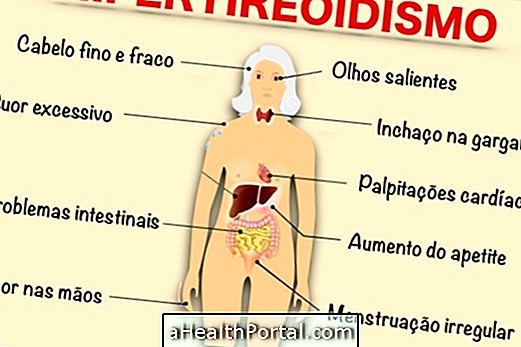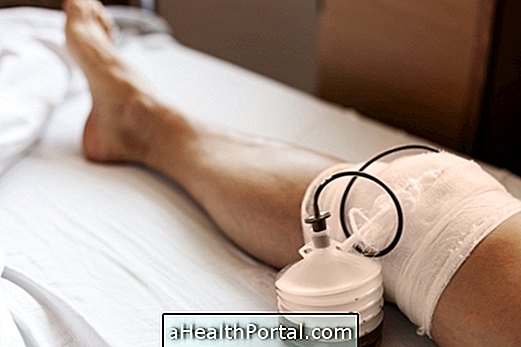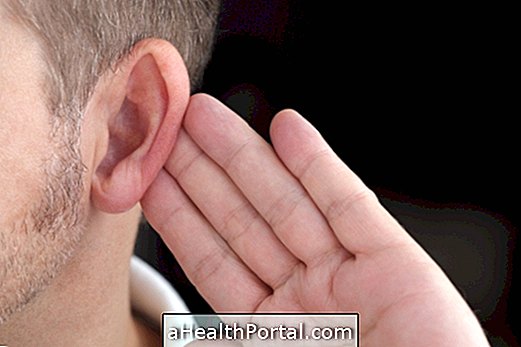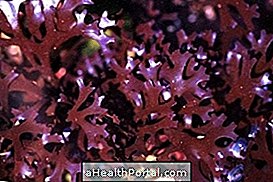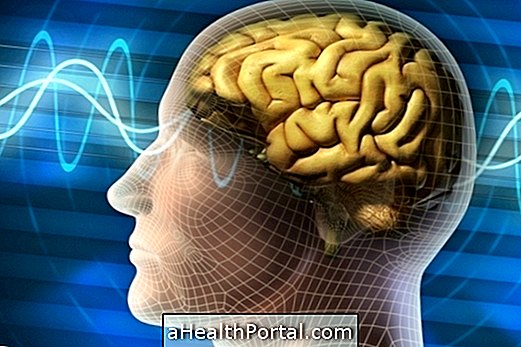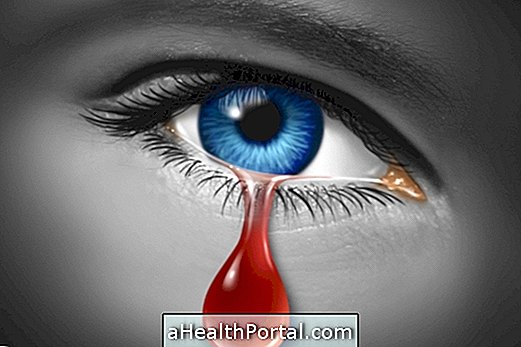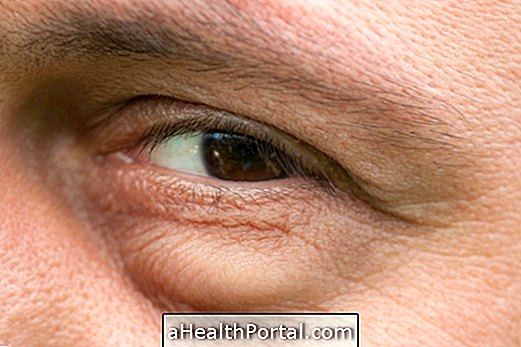The complications of dengue usually arise when one is bitten more than once by the mosquito or when the necessary care during illness, such as rest and constant hydration, does not happen. Understand how the treatment of dengue is done.
Dengue is a disease caused by the virus, known as dengue virus, which is transmitted to people through the bite of the Aedes aegypti mosquito, leading to the emergence of symptoms such as pain throughout the body, appearance of red skin on the skin, extreme tiredness, nausea and high fever. See the symptoms of dengue fever and how long the symptoms last.
In addition to transmitting dengue, Aedes aegypti can carry the Zika and Chikungunya viruses, so it is important to avoid leaving debris in the yard, to put soil in the plant pots and to keep the trash can properly closed, thus preventing not only dengue as well as zika and chikungunya.
Some of the complications that can be caused by dengue are severe dehydration, liver, heart, neurological or respiratory problems, in addition to hemorrhagic dengue, which is a serious reaction to the dengue virus that leads to bleeding.
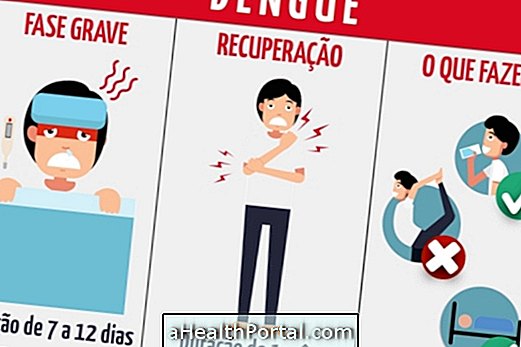
Thus, the complications that can be caused by dengue include:
1. Hemorrhagic Dengue
Hemorrhagic dengue is a type of dengue that usually arises, most often when it is infected more than once by the virus, leading to changes in blood clotting. This disease causes bleeding especially in the eyes, gums, ears and nose, as well as the appearance of blood in the stools, red skin patinas, vomiting and weak and fast pulse. Find out what the symptoms are and how the hemorrhagic dengue treatment is done.
This type of dengue if not treated quickly can lead to death and its treatment has to be done in the hospital so that the bleeding and hydration of the body can be controlled. Learn how to prevent dengue.
2. Severe dehydration
Dehydration is one of the most common symptoms of dengue and when it does it causes symptoms such as extreme tiredness, thirst, weakness, headache, dry mouth and lips, cracked lips and dry skin, sunken eyes and bottoms and increased heart rate.
Dehydration can be treated and prevented through ingestion and homemade whey, fruit juices, teas and water while you are sick, but in more severe cases it may be necessary to go to the hospital so that the dehydration treatment can be done with directly administered saline in vein. See the symptoms of dehydration.
Learn to prepare homemade whey only using water, salt and sugar. See the video:

3. Liver Problems
Dengue, when not treated properly, can cause hepatitis or acute liver failure, for example, which are diseases that affect the liver, leading to changes in the functioning of the organ. In more severe cases, these diseases can lead to irreversible liver damage, and a liver transplant may be necessary. Understand how liver transplantation is done.
When there are problems in the liver, symptoms of vomiting, nausea, severe pain in the belly and abdomen, light stools, dark urine or skin and yellowish eyes, for example, are usually present.
4. Neurological Problems
Some of the complications that arise when the dengue virus hits the brain are encephalopathy, encephalitis and meningitis, for example. In addition, dengue can also cause Myelitis, an inflammation in the spinal cord and Guillain-Barrè Syndrome, an inflammation that affects the nerves. Understand more about Guillain-Barrè Syndrome.
These complications can happen because the dengue virus can pass directly into the bloodstream, which can reach the brain and the Central Nervous System, causing inflammation. In addition, the virus can also provoke an overreaction of the immune system, causing it to produce antibodies against the virus that end up attacking the body itself.
When the dengue virus affects the central nervous system there are specific symptoms such as drowsiness, dizziness, irritability, depression, convulsions, amnesia, psychosis, lack of motor coordination, loss of strength on one side of the body, in the arms or legs, delirium or paralysis, for example.

5. Cardiac and Respiratory Problems
Dengue can also lead to pleural effusion when it reaches the lungs, or to myocarditis, which is inflammation of the heart muscle.
When there are respiratory or cardiac problems, some of the symptoms that can be felt include shortness of breath, difficulty breathing, cold and bluish hands and feet, chest pain, dry cough, muscle aches or dizziness.
All these problems should be treated in the hospital, as they are more serious complications that require adequate treatment and constant medical follow-up. In addition, it is very important to always be aware of the symptoms you feel, because when not properly treated dengue can even lead to death.


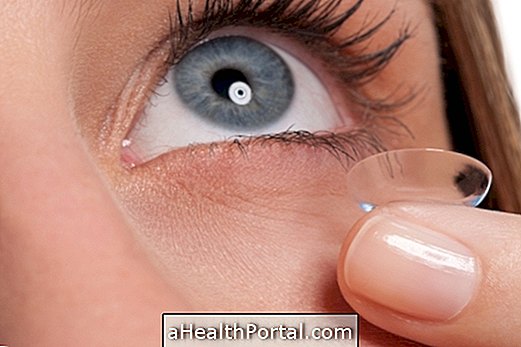
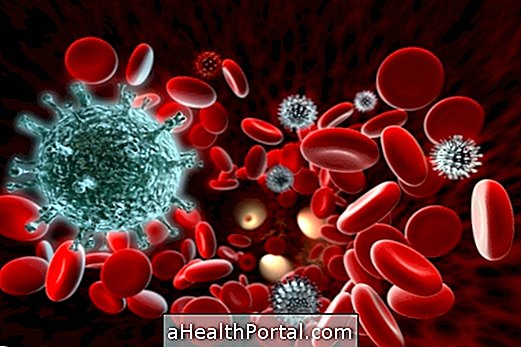



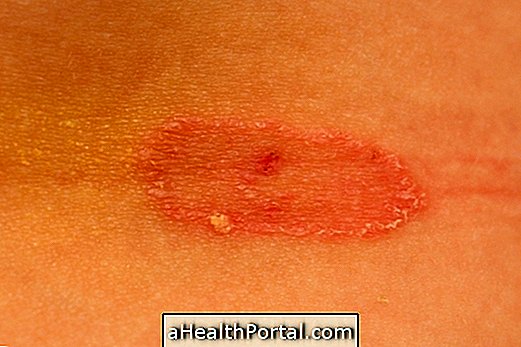
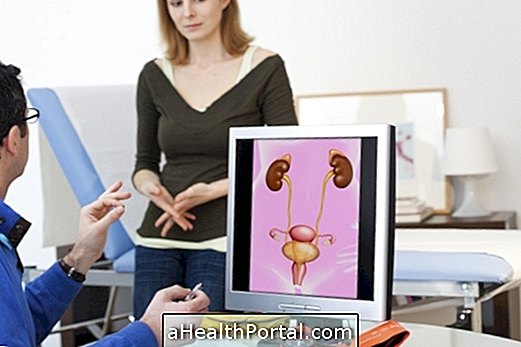

-o-que--sintomas-e-tratamento.jpg)
